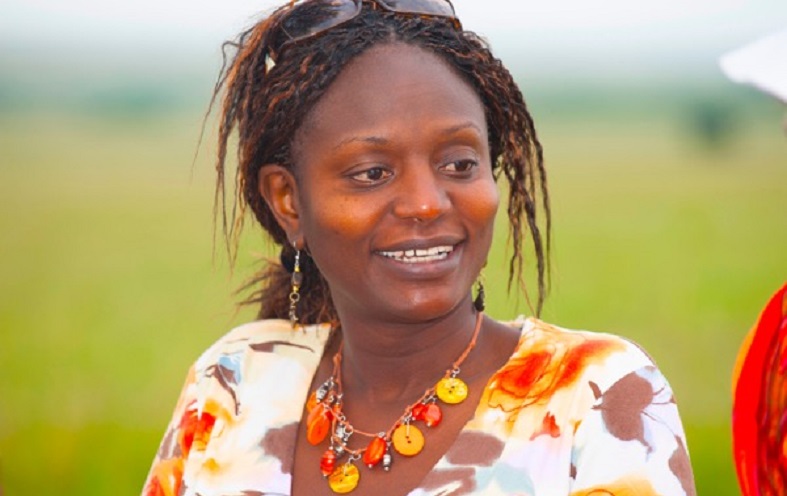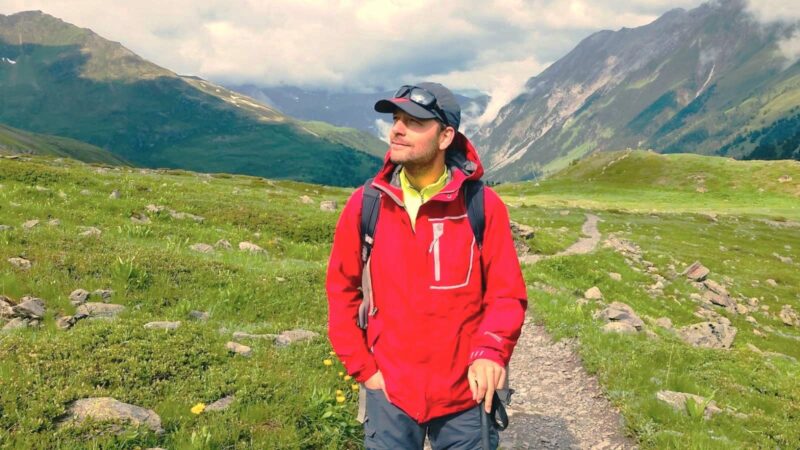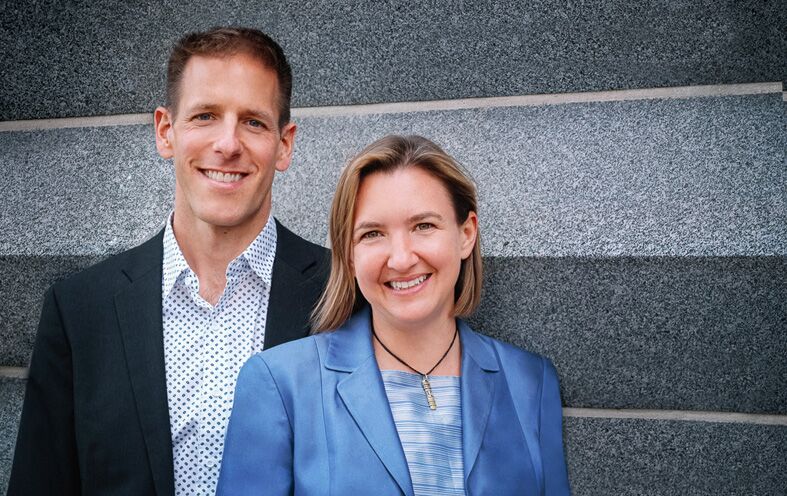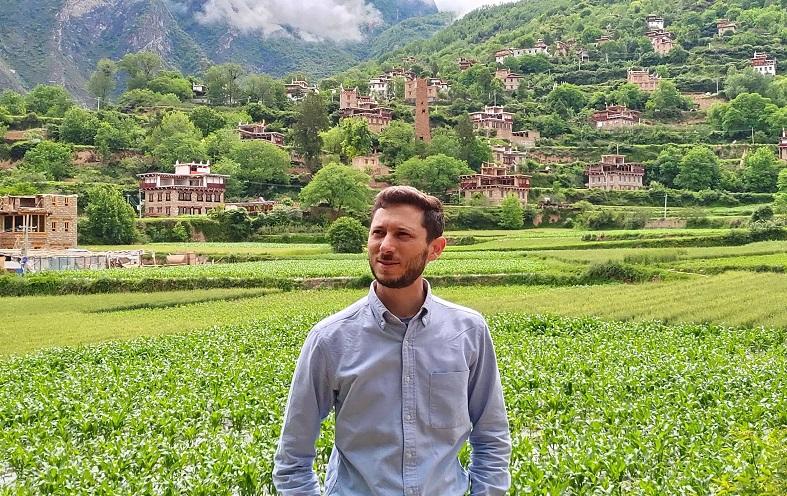
Judy Kepher-Gona in this interview shares her experience as an ecotourism consultant and tourism business advisor in Kenya, Africa. Learn about destination sustainability challenges, how to engage business and political leaders, and why destination marketing and branding can both promote and inhibit sustainable tourism.
Judy, sustainability is now a key topic for most travel businesses and destinations, but it wasn’t always that way. Do you remember the first time you heard or thought about “sustainable tourism”?
The first time I heard about sustainability in tourism was in 1999. This was at the first conference on ecotourism held in Africa, Kenya, by The International Ecotourism Society. In the same year, I had a chance to read Martha Honey’s book titled, Ecotourism and Sustainable Development. Who Owns Paradise? That was an eye-opener. From then onwards, I have never stopped thinking about and re-imagining sustainability.
However, the buzzword at that time was ecotourism, which was associated with community support and rustic tourism developments. The emphasis was on tourism leaving no footprints.
At that time, the conceptualization of social responsibility and environmental responsibility was limited to respecting cultures and developing tourism in communal areas and minimising disturbance of natural areas during development respectively.
Reflecting on your more than 18 years of experience as a sustainable tourism consultant and facilitator in Kenya, how have your views on tourism and sustainability changed over time?
My views on tourism and sustainability have definitely evolved over time.
I have transcended from seeing tourism as a vehicle purely for revenue generation, to an integrated sustainable development tool, that can be used to promote rights of host communities, secure livelihoods of host communities, protect and advocate for the protection of resources, promote peace through exposing cultures and reduce prejudices among different people.
Today I believe tourism is not only the business of the investor, it also the business of the traveller who consumes what the business is offering, the employees of the business, the host communities around the business and the natural environment.
I believe that tourism is a web, held at the center by values. Policies and other links in the web are only as strong as the values of the business. Today, these values are represented by SDGs [Sustainable Development Goals], the Agenda 2030 for sustainable development, Climate action, human rights, animal rights etc.
The evolution of my views is a process of consciousness informed by networking, professional engagements, travel experiences, research, engagement with communities and private sector, and global human/ethical values.
As Founder and Principal Consultant of ‘Sustainable Travel & Tourism Agenda’ (STTA), which have been your professional highlights so far – i.e. achievements you are particularly fond of?
I am very passionate about sustainable tourism. It is not a job for me. It is a path; a purpose. I see opportunities to make a difference everywhere, every day. Therefore, since founding STTA, I have initiated many programs.
My professional highlights at STTA include:
- Launching the EA Sustainable Tourism Report in October 2015. This report provides a platform for sharing research, opinions, trends and updates on sustainable tourism in East Africa. Young tourism scholars use it to publish their research work. It has received recognition from some universities in Kenya and is widely read by students of tourism and academia.
- Launching the Green Tourism Summit Africa, an annual event whose mission is to influence tourism in the region to grow sustainably. We are hosting the 4th Summit this year and are continuously excited about the growth of this initiative and the interest it is attracting.
- Designing and launching training modules in sustainability for tourism professionals to fill a knowledge gap that is affecting the uptake of sustainable tourism in the region. These modules are informed by experiences I have gained from being an on-site assessor for the WTTC Tourism for Tomorrow Awards, National Geographic Unique Lodges of the World, Judge of the Kenya Eco-Warrior Awards, designing of Kenya’s eco-certification scheme for lodges, Training by Travelife as an assessor and working with communities and conservation.
- The STTA Young Changemakers initiative for undergraduates studying tourism and conservation. The program promotes inter-university learning through monthly seminars on topical issues linked to the sustainable development of tourism and conservation.
To your mind, which challenges do destinations in Kenya and neighbouring countries struggle most with, linked to tourism sustainability?
I see the following as the challenges destinations in Kenya and neighbouring countries are struggling with:
- Perceived exclusivity of sustainable tourism: without saying it, Destination Marketing Organizations are afraid that if they talk sustainability and push for it as a destination strategy, they may exclude certain market segments, yet they are still chasing numbers. This is because the target is always more numbers.
- Transition to green operations may be expensive, especially where capital investment is required.
- Fear that being sustainable will rob them the opportunity to be luxurious. So, the challenge is how to be sustainable and luxurious.
- Measuring the value of sustainability. Much express concern over the inability to measure return on investment for sustainability. The economic value of making the change from doing business as usual to sustainability does not make sense to many. This is because they are seeking to be sustainable; they are seeking to make money out of sustainability. The motive is wrong.
- Lack of internal capacity to plan for and make the transition. Because they don’t understand much of it, they ignore it and hope it is not going to affect them.
This June you are organizing the Green Tourism Summit Africa in Kenya: which topics will dominate the agenda as the most relevant right now, in terms of modelling a sustainable future for tourism and conservation in Africa?
The summit is always about opportunities to future-proof tourism through sustainability and building destination values. In 2018, the topics that will dominate are issues the destinations are struggling with:
- Re-thinking luxury. How to offer luxury without being wasteful, irresponsible and abusive of host communities and the environment.
- Rethinking destination competitiveness by leveraging environmental and social sustainability.
- Ethical practices in community interaction in tourism and conservation and other emerging ethical issues in tourism.
- Managing competing interests for conservation spaces. Conservation areas competing for space with settlements, agriculture, pastoralism, industrialization etc. How should this be handled to avoid conflicts?
As a destination specialist, do you have practical tips on how to create links between sustainable tourism (ecotourism), conservation and community development?
The best way to create links between sustainable tourism (ecotourism), conservation and community development, is to acknowledge the value/significance of community and conservation, describe that value and how it should be secured, and use tourism as a/one vehicle to secure that value. Tourism is the last ingredient in the mix.
In your training and consulting work, which advice do you offer on how to engage political and business leaders (=decision-makers) in tourism sustainability?
The best way to engage political and business leaders is to demonstrate a commitment to sustainable practices through proper documentation of practices and results, research, and effective communication: information sharing using different, credible platforms. Consistency is key in winning them over.
How important is a destination’s sustainability performance nowadays for its competitiveness?
Sustainability gives destinations and businesses a competitive edge.
In 2016, STTA did an assessment of occupancy trends between eco-certified lodges and non-certified lodges. The graphs showed a higher and continuous upward trend for eco-certified camps and lodges. Even when there were disruptions like the break-out of Ebola in central Africa and election challenges, the eco-certified properties remained relatively stable.
These results are proof that the sustainable practices of a destination and commitment to promoting responsible travel will ultimately decide how attractive or how competitive a destination is.
In the destination ranking of the Travel and Tourism Competitiveness Index, we have seen countries committed to conserving their natural heritage – like Botswana – rise in the index, while other countries drop due to deforestation and similar issues. This is another proof that sustainability performance is key for destination competitiveness.
Therefore, I often tell the industry, boldly, that, “sustainability is a new luxury”
The above notwithstanding, destination competitiveness rankings remain more focused on visitor numbers and spending, and need reviewing.
Furthermore, if we are to use sustainability performance to determine the competitiveness of a destination, we need the right tools to capture the right information, systems to make the information available – and models for facilitating comparison across destinations. This is a tough call, but possible.
Here is the bigger challenge we must crack. When comparing the destination ranking of the Travel and Tourism Competitiveness Index and The SDG Index and Dashboard country ranking by the Sustainable Development Solutions Network (SDSN) and the Bertelsmann Stiftung, one notices that there is a complete mismatch.
We need to rethink how we measure destination competitiveness in alignment with global development frameworks.
Which trends or changes do you observe in the international sustainable tourism community?
Here are some trends to watch in the international tourism community:
- The sustainability agenda has shifted focus from business operations to shared values. Sustainable businesses must now report, first to society, then to shareholders.
- The sustainability agenda will soon be driven by travellers/consumers and not businesses.
- There is a resurgence of greenwashing, fuelled by social/free media where businesses can make unverified claims about their sustainability.
- Tourism businesses realize the need to report and communicate sustainability, but share unverified reports, without reference to any reporting frame.
- The proliferation of fake green awards. Many of them emerge to please the ego of companies that want to continue business as usual while benefiting from opportunities presented by sustainability-talk. A good way to distinguish is to ask whether awards incorporate an on-site evaluation.
What role does destination branding and marketing play as facilitator (or inhibitor…) of more sustainable tourism?
Let me share two examples of how marketing campaigns can be facilitator or inhibitor of more sustainable tourism.
The first example is the state of Kerala in India, which has branded itself as “God’s Own Country” and through its 2014 award-winning responsible travel marketing campaign, “When the World Comes to Kerala, New Worlds Open Up”. Kerala has experienced growth in visitor numbers, both domestic and foreign, since 2008 because of branding and marketing itself as a responsible destination. And these visitors are encouraged to consume authentic cultural products offered in the destination.
On the other hand, New Zealand, with its “100% Pure” campaign has attracted criticism from media and travellers around the globe as greenwash, and that the campaign is not genuine about the true state of the natural environment in the country. New Zealand has recently reframed the “100% Pure” campaign to refer to culture, its people and the uniqueness of the experiences one might have when visiting the country.
Although they are saying it is not because of the complaints, we can see how sometimes marketing can be an inhibitor of sustainable tourism, especially if such campaigns trigger strong growth in visitor numbers, but little improvement of destination sustainability.
There are lessons to learn from these two examples:
- When destination marketing focuses on getting more visitors, as opposed to getting more revenue/value, it inhibits sustainable tourism and risks creating a mass tourism destination that responds to visitor needs and isolates locals.
- Destination branding may be detached from reality, in an effort to push to numbers.
One trend mentioned in previous interviews is a stronger focus on the social component of sustainability, especially gender equality and community well-being. To your mind, how can tourism act as a positive force in those areas, for instance in Africa?
In Africa, tourism is dependent on attractions that are found in rural areas. This is particularly true for countries in Eastern and Southern Africa that depend on wildlife and beach tourism.
Women form a large percentage of rural populations in Africa. They also form the highest percentage of unskilled labour, apart from being oppressed by cultural practices that perceive them as being of lesser value than men.
Tourism relies heavily on human resource and other industries to deliver its services. Because of this, the sector has been recognized to have great potential of generating employment opportunities, both directly and indirectly, and for both skilled and unskilled labour.
If tourism is truly sustainable, it will empower the women to join the tourism supply chain, to reduce gender parity in as far as income is concerned. It will employ women, both skilled and unskilled, by creating a flexible environment for women to work, learn, and grow.
On the same note, sustainable tourism promotes community well-being. As a rural-based sector in Africa, tourism has the greatest opportunity to improve community well-being through employment, trade partnerships with community, joint ventures, leadership mentorship to improve resource management and benefit-sharing models.
Indeed, indicators used for measuring social performance in sustainable tourism include gender equity and contribution to community well-being. Leading sustainable tourism operators in East & Southern Africa have demonstrated that gender equality and community well-being is feasible through sustainable tourism. The Ratio of women in tourism management positions is rising, and examples of high impact social development projects are increasing.
Sustainable tourism can therefore be used as a tool to address these issues, especially for less industrialized countries where tourism is their major export. I strongly believe in the following statement, which summarises the potential of tourism to address gender issues and community well-being:
Great places to visit must first and foremost be great places for host communities to live in.
Anything else you’d like to mention?
I strongly feel that sustainability is a value-based approach to business. Therefore, businesses should consider success in more ways than profit.
Value-based businesses are not only future proof, they are great places to work, grow and learn for employees, they are influencers and mentors of business partners and their supply chain, they are mentors and motivators of their clients through effective credible information and guardians of nature through sustainable consumption and production ethics.
Thank you, Judy.
Connect with Judy Kepher-Gona on LinkedIn or via her website.
Enjoyed our interview with Judy Kepher-Gona on the tourism business, destinations and sustainability in Africa? Spread the word!











